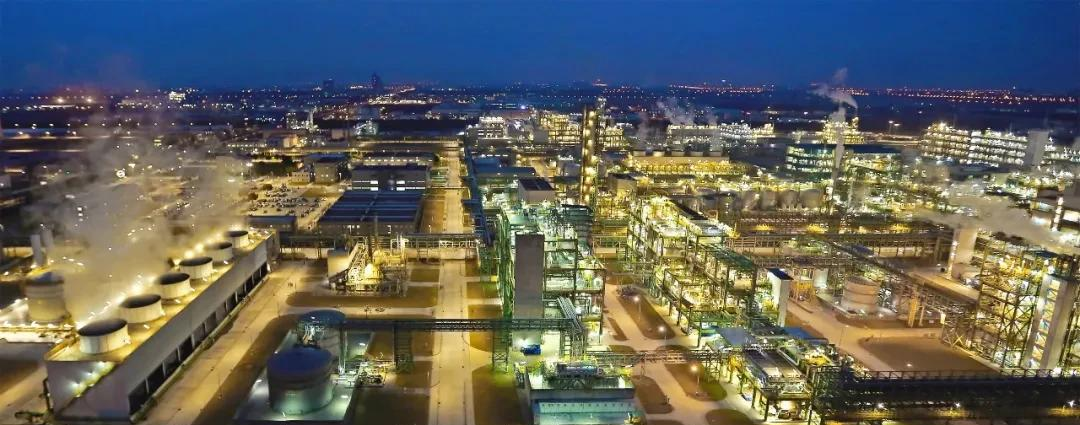
Covestro announces that its integrated site in Shanghai has received the ISCC Plus Quality Balance certification, which means that Covestro has the ability to supply customers in the Asia-Pacific region with high-performance polycarbonate plastics made from alternative raw materials and polyurethane raw material diphenylmethane diisocyanate (MDI) in large quantities, as well as the corresponding fossil-based products.
The Shanghai verbund site thus became Covestro's first ISCC Plus-certified site in Asia Pacific and the company's largest production site in the world. Covestro's Site in Antwerp, Belgium, and its Roots in Yulding, Germany, received this certification in late 2020. At the same time, two local trading entities, Covestro (Shanghai) Investment Co., Ltd. and Covestro (Hong Kong) Cove, Ltd., have also recently been certified by ISCC Plus.
This means that quality balanced certified products can now be seamlessly delivered from Covestro's production and trading departments to downstream industries. The first makrolon ®RE series polycarbonate order certified by mass balance at Covestro's Shanghai verbosity site will be delivered to the electronics industry in September.
"We are very proud that we have been able to take a big step forward in achieving our vision of a comprehensive cycle to meet the demand for more sustainable products." Sucheta Govil, Chief Commercial Officer of Covestro, said: "With the latest quality balance certification, we are able to directly support our customers in the Asia-Pacific region and reduce our carbon footprint. The solution requires no technical modification and can be applied directly to existing production processes. ”
Use a mass balance approach to alternative raw materials
Dr. Yun Chen, General Manager of Covestro's Shanghai Verbund Site, said: "This is a key step towards achieving carbon neutrality and ultimately moving towards a circular economy. Not only do we receive external certifications, we are also actively advocating for the use of more sustainable raw materials and implementing our goal of reducing our carbon footprint in all aspects of our product production, distribution and sourcing. ”
Mass balancing is a chain-of-custody approach that allows fossil and alternative raw materials to be mixed in production but separated in bookkeeping. The method tracks materials through the value chain and distributes alternative raw materials such as bio-based raw materials to selected end products. Through a quality-balanced approach, alternative raw materials are introduced into the value chain, while leveraging existing efficient chemical production infrastructure with economies of scale, accelerating the plastics industry's transition to a circular economy.
Reduce co2 footprint by up to 80%.
Covestro's mass-balanced products with alternative raw materials have the same quality and performance compared to fossil-based products, but with a significantly lower carbon footprint. For example, Makrolon ®RE can reduce its carbon footprint by up to 80% compared to standard virgin materials, which contributes to the fight against climate change. Covestro plans to introduce renewable energy to the Production of electricity used in production at its European sites by the end of this year, making some of Makrolon's ®RE polycarbonate products carbon neutral, followed by sites elsewhere.
As part of the transition to a circular economy, Covestro is gradually shifting to alternative raw materials, including renewable raw materials. With the certification of polycarbonate as well as intermediate product MDI, Covestro is strengthening its use of alternative raw materials. Polycarbonate is widely used in high-end applications such as automotive and electronics. MDI can be used to produce rigid polyurethane foams, which have long been widely used in refrigeration equipment and construction as highly efficient thermal insulation materials.
ISCC (International Sustainability and Carbon Certification) is an internationally recognized sustainability certification system for biomass and bioenergy. The standard applies to all stages of the value chain and is recognized worldwide.
Gradually increase the proportion of renewable energy utilization
In addition, Covestro Shanghai Integrated Base has reached an intention with Datang Wuzhong New Energy Co., Ltd. to purchase about 100 million kWh of green electricity from its Ningxia photovoltaic power station every year. These amounts of electricity account for about 10% of the annual electricity demand of the Shanghai site, which will further increase the proportion of its renewable energy utilization. By progressively using renewable energy in production, Covestro is taking another step towards the vision of a circular economy.